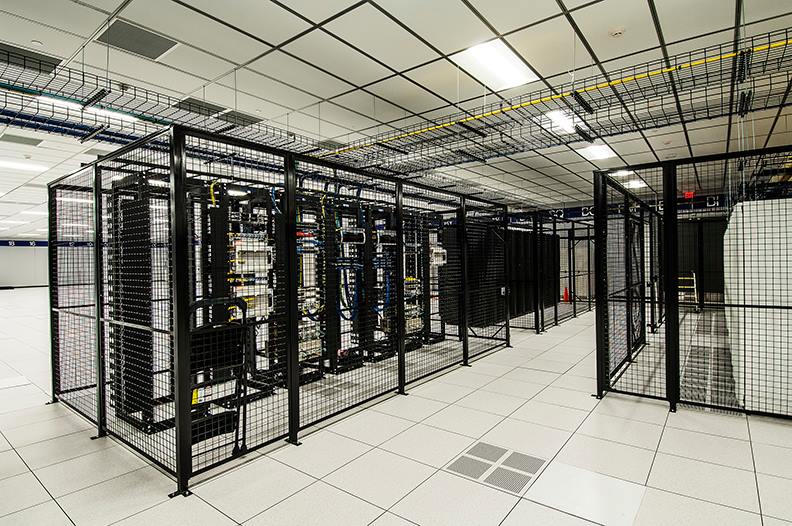
In today’s fast-paced, technology-driven business environment, organizations need scalable, secure, and cost-effective infrastructure solutions to maintain their digital operations.
Colocation, a solution where companies rent space for their servers and other computing hardware in third-party data centers, is becoming an increasingly popular choice for businesses seeking efficient IT operations without managing their own data centers.
This article explores the advantages of colocation services, and highlights case studies from the United States and the United Kingdom, two regions with mature data center markets. We’ll also show how Reboot Monkey can assist businesses in leveraging colocation to meet their needs.
What is Colocation?
Colocation involves housing a company’s IT infrastructure in a third-party data center. Businesses rent physical space within a colocation facility, which provides the necessary power, cooling, security, and network connectivity. Companies maintain control over their equipment and data, while the data center operator manages the facility.
Some key benefits of colocation services include:
- Cost Efficiency: Businesses avoid the capital expenses associated with building and maintaining their own data centers.
- Scalability: Colocation facilities offer flexible space and power options that can scale with a company’s growing needs.
- Enhanced Security: Providers invest in top-tier security measures like biometric access controls, 24/7 surveillance, and fire suppression systems.
- Improved Uptime: High-performance colocation centers offer redundant power supplies, backup generators, and multiple network connections to ensure maximum uptime.
Colocation in the United States
The United States has a well-established colocation market, driven by its large economy, advanced digital infrastructure, and the rise of cloud services. U.S.-based businesses use colocation for various purposes, including disaster recovery, data storage, and enhanced network performance.
Case Study: Amazon’s Use of Colocation
Amazon, a global leader in e-commerce and cloud computing, initially relied heavily on colocation services to support its growing infrastructure needs. Colocation enabled Amazon to expand its server capacity without building its own data centers in every region. By placing servers in strategically located colocation centers, Amazon improved its service delivery times and minimized latency for customers across the U.S.
Though Amazon now has its own vast network of data centers (AWS), its early reliance on colocation paved the way for smaller companies to recognize the scalability, security, and cost-efficiency that colocation can provide.
Colocation Data Center Services: Your Ultimate Guide to Business Efficiency | Reboot Monkey
Colocation in the United Kingdom
The UK has similarly embraced colocation, with London being a major hub for data centers due to its strategic position as a financial center and gateway to Europe. Data centers in the UK offer robust connectivity, essential for global businesses.
Case Study: British Telecom (BT) and Colocation
British Telecom (BT), one of the UK’s largest telecommunications providers, has integrated colocation into its IT strategy to improve service delivery and reduce costs.
By outsourcing some of its server hosting needs to third-party colocation centers, BT optimizes network performance and reduces latency for its customers. These facilities also offer redundancy and disaster recovery options, ensuring high service availability.
The UK’s stringent data privacy regulations, particularly after Brexit, have increased the demand for local colocation facilities to host sensitive customer data, demonstrating how colocation can help businesses comply with legal requirements while maintaining performance standards.
Colocation vs. Cloud Computing: A Balanced Approach
Although cloud computing has grown in popularity, colocation remains a critical component of many businesses’ IT strategies. Companies often use a hybrid approach, combining colocation and cloud services for a balanced infrastructure solution.
Colocation offers greater control over hardware and data, making it ideal for organizations with specific compliance requirements or those seeking to maintain their own servers. On the other hand, cloud services are typically used for their flexibility and scalability, allowing businesses to rapidly deploy applications and scale resources as needed.
Choosing the Right Colocation Provider
When selecting a colocation provider, companies should consider several factors:
- Location: Proximity to company headquarters or key markets can reduce latency and improve performance.
- Scalability: Look for providers that offer flexible space and power options to accommodate future growth.
- Security: Ensure the facility has robust physical and digital security measures.
- Support: Choose a provider that offers 24/7 technical support to address any issues that may arise.
How Reboot Monkey Can Help Your Business
If you’re looking to leverage colocation services to improve your IT infrastructure, Reboot Monkey can help. We specialize in providing tailored colocation and data center solutions that meet the unique needs of businesses, whether in the U.S., UK, or beyond.
Our team of experts works closely with you to assess your infrastructure needs and match you with the right colocation provider, ensuring optimal performance, security, and scalability.
At Reboot Monkey, we understand that your business requires reliability and efficiency. Let us take the complexity out of managing IT infrastructure so you can focus on what you do best—growing your business.
Contact Reboot Monkey today to learn more about how colocation services can benefit your organization.


